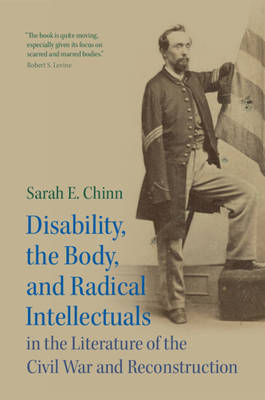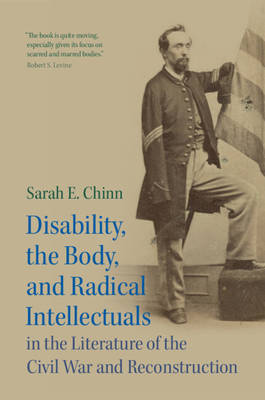
- Afhalen na 1 uur in een winkel met voorraad
- Gratis thuislevering in België vanaf € 30
- Ruim aanbod met 7 miljoen producten
- Afhalen na 1 uur in een winkel met voorraad
- Gratis thuislevering in België vanaf € 30
- Ruim aanbod met 7 miljoen producten
Zoeken
Disability, the Body, and Radical Intellectuals in the Literature of the Civil War and Reconstruction
Sarah E Chinn
€ 64,95
+ 129 punten
Omschrijving
During the Civil War, hundreds of thousands of men were injured, and underwent amputation of hands, feet, limbs, fingers, and toes. As the war drew to a close, their disabled bodies came to represent the future of a nation that had been torn apart, and how it would be put back together again. In her authoritative and engagingly written new book, Sarah Chinn claims that amputation spoke both corporeally and metaphorically to radical white writers, ministers, and politicians about the need to attend to the losses of the Civil War by undertaking a real and actual Reconstruction that would make African Americans not just legal citizens but actual citizens of the United States. She traces this history, reviving little-known figures in the struggle for Black equality, and in so doing connecting the racial politics of 150 years ago with contemporary debates about justice and equity.
Specificaties
Betrokkenen
- Auteur(s):
- Uitgeverij:
Inhoud
- Aantal bladzijden:
- 270
- Taal:
- Engels
- Reeks:
- Reeksnummer:
- nr. 194
Eigenschappen
- Productcode (EAN):
- 9781009442701
- Verschijningsdatum:
- 23/10/2025
- Uitvoering:
- Paperback
- Formaat:
- Trade paperback (VS)
- Afmetingen:
- 152 mm x 229 mm
- Gewicht:
- 358 g

Alleen bij Standaard Boekhandel
+ 129 punten op je klantenkaart van Standaard Boekhandel
Beoordelingen
We publiceren alleen reviews die voldoen aan de voorwaarden voor reviews. Bekijk onze voorwaarden voor reviews.








